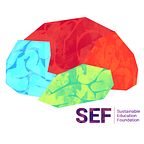Meet Sri Lankan Researcher —Kaushalya Perera
What are you currently working on or worked on before?
I have been working on understanding the role of cytokine receptor components in the development of blood and immune cells. Currently, I am a PhD candidate at the School of Medicine, Faculty of Health, Deakin University, Geelong, Australia. My current work focuses on characterising the Natural Killer (NK) cells in teleost with the aim of understanding their function, conservation, and role in viral and tumour biology.
What encouraged you to pursue your research topic?
I have always been interested in understanding our defence mechanism against foreign pathogens, infected host cells, and transformed cells. As an undergrad, my focus was initially on infectious diseases, trying to understand how pathogens invade our immune system.
During my postgraduate studies, I had the opportunity to dig deep into the vertebrate immune system to trace several aspects that remain vague, and NK cells are one of them. For my PhD, I chose to investigate these cells with the incredible ability to kill cancerous or virus-infected cells, which can be an additional alternative to cell-based immunotherapies.
Where do you find your best inspiration for your work?
I find inspiration in many I have met so far; my supervisors, mentor, and some of my lecturers, but I would have to say that I find the biggest inspiration in my parents. For them, I am their pride and greatest joy in life. This way of thinking has contributed significantly to my success in work.
You can find my publications here.
What lessons would you share with a budding researcher?
Research is where nothing goes as planned but do it with passion. You must enjoy what you are doing. That’s the key. There’s always something we can learn from every failed step — so, stay curious.
What motivated you to be a researcher?
As I think of it now, I think it all started when I was a kid. I had this book on biographies of all the famous scientists. In that book, the author had highlighted how these average or sometimes under-average kids, who were once neglected, made the world’s greatest discoveries. As a kid, this was my favourite book, and I used to read it over and over again. Well, that was the foundation. After that, no matter how many times I failed in this journey, I kept believing that’s how it should happen, and I still do.
According to your opinion, what are the changes that the Sri Lankan education system needs to do, in order to meet the requirement of the international industry and academia?
I firmly believe that every individual is an expert in something. Our education system fails us in finding where our expertise lies. That’s the simple reason for most of the school dropouts. When it comes to this topic, the theoretical mindset and lack of innovation are the most discussed points. It’s true — but I think giving equal importance to every sector is where it should start. If we can rebuild the system centering the thought “every profession is equally important”, that would revolutionize our education system.
